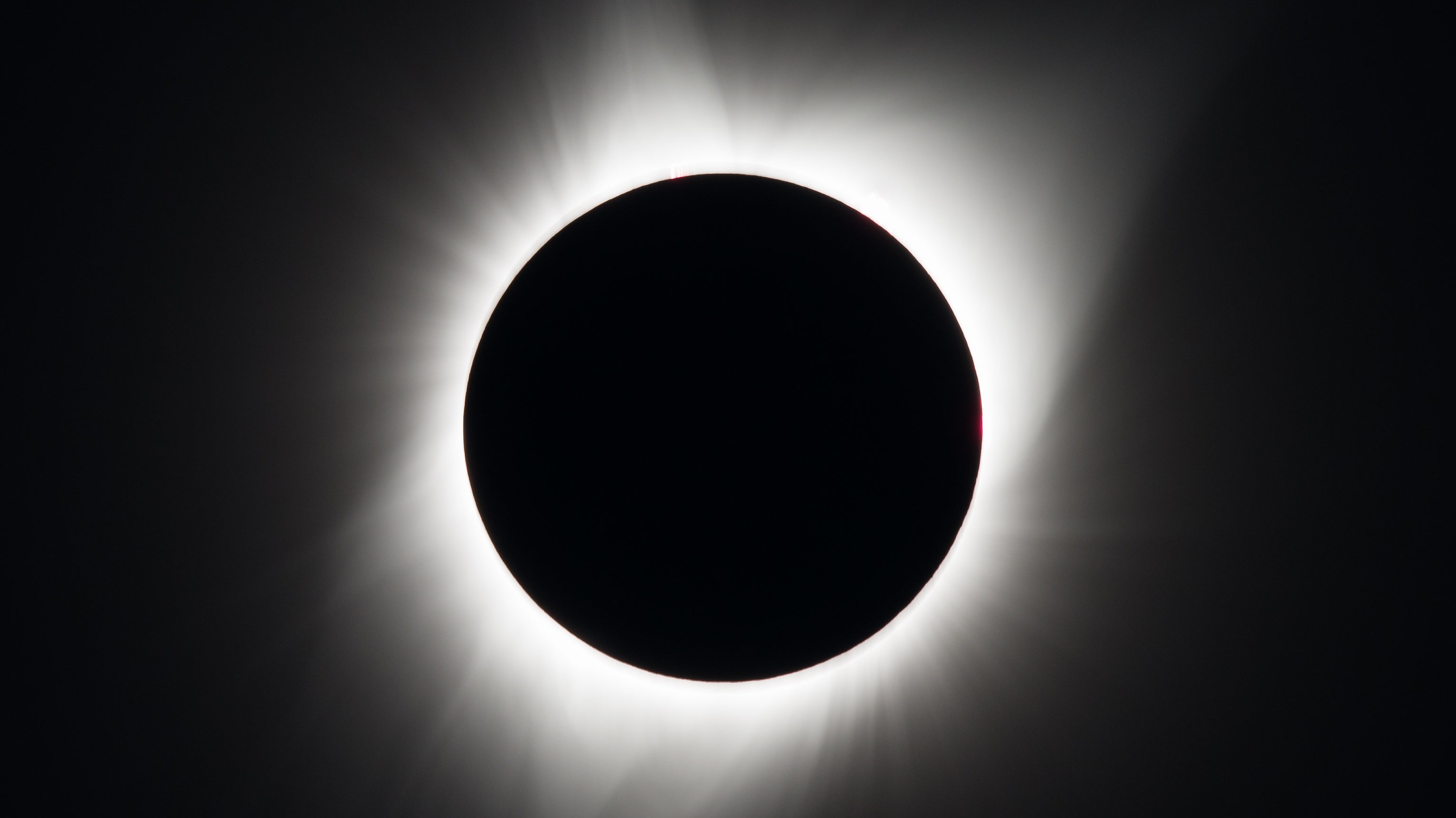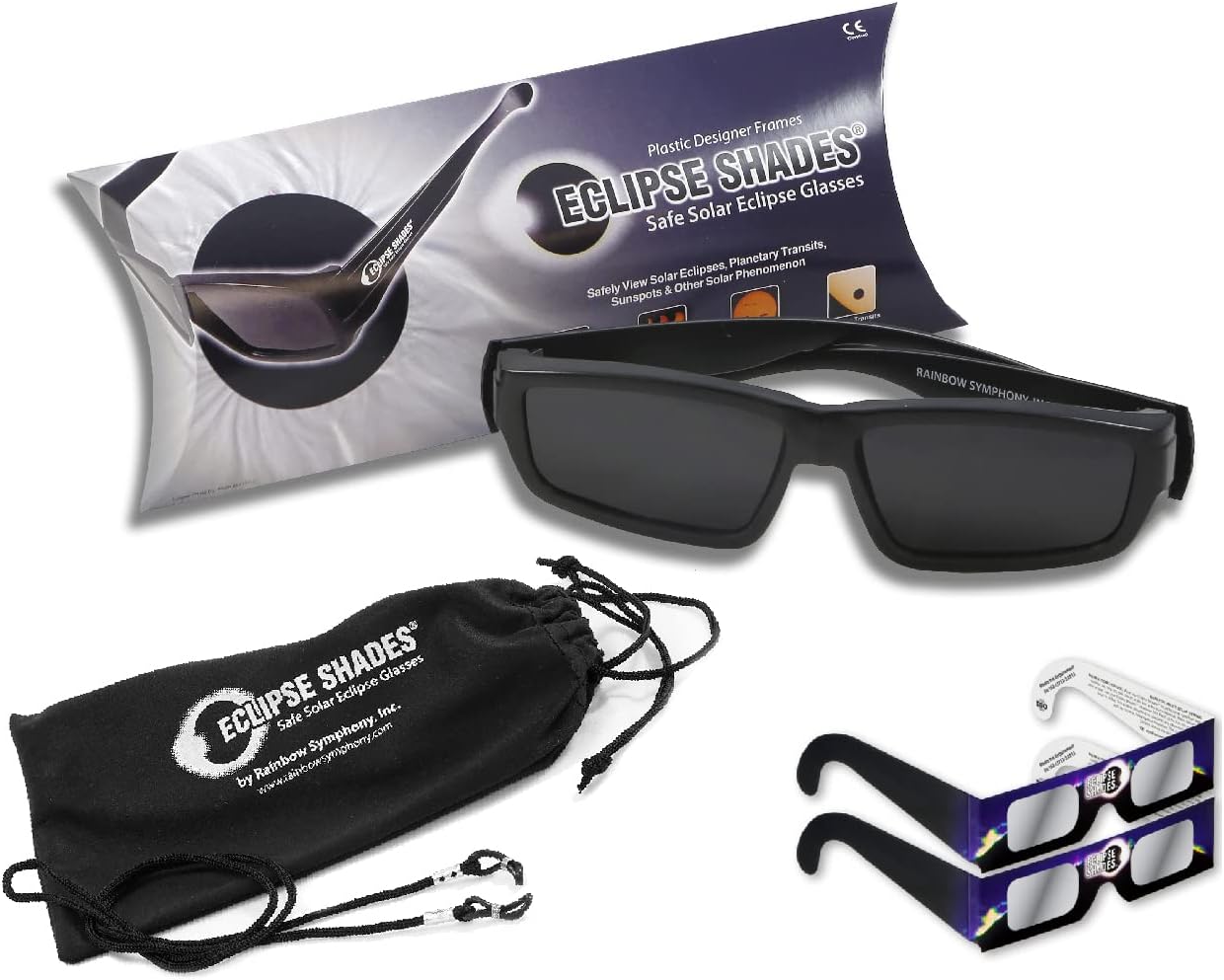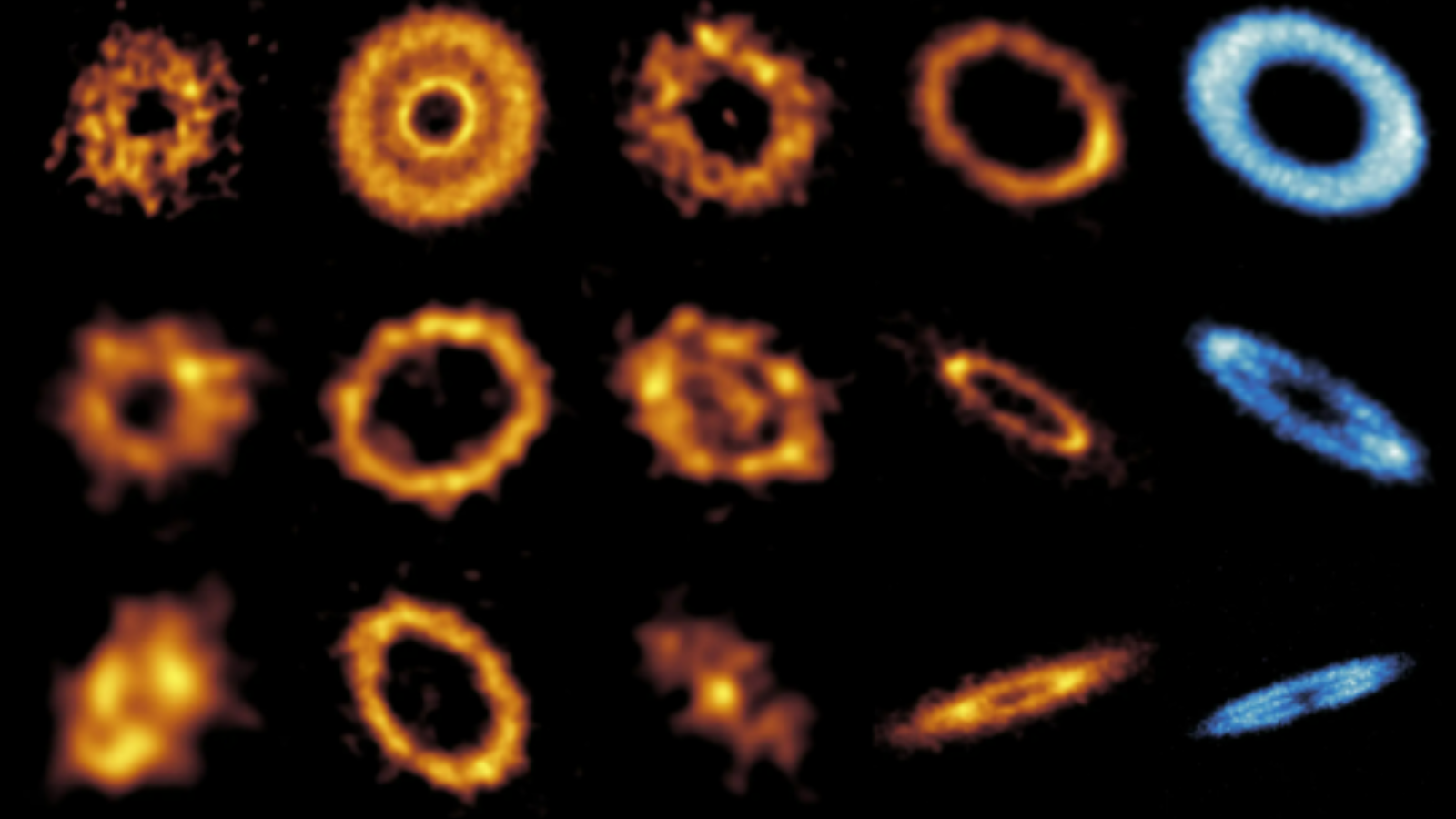Warby Parker will give you free solar eclipse glasses for the big day on April 8
To help everyone get ready for April's total solar eclipse, Warby Parker is handing out some key sun-watching gear.

There will be a total solar eclipse on April 8, 2024 — and what a sight that will be.
The moon will appear to line up perfectly with our planet's host star from many vantage points on Earth, leading to a surreal experience for anyone along the so-called path of totality. For a few minutes, it will feel like nightfall during the day. And even if you're not on this path, you'll be able to catch a glimpse of the phenomenon (though you'll be seeing a partial solar eclipse, technically.) This is something that won't happen again for observers in the lower 48 U.S. states until the year 2044.
But obviously, watching a solar eclipse involves staring directly at the sun. Let's not do this unwisely, please. You're going to need some special solar eclipse glasses — and what better place to pick those up than from the giant itself, Warby Parker. You'll have to act fast, though: the solar eclipse is just one week away.
Related: Total solar eclipse 2024: Live updates

Our guide on where to buy solar eclipse glasses has everything you need to know on where to find them and what to look for.
Warby Parker, known for its affordable yet trendy lenswear, has announced that all of its stores will be handing out free solar eclipse viewing glasses starting April 1 until the big day. Up to two pairs will be provided per family. This will go on while supplies last, but based on some patterns we've been seeing — the way flights to the path of totality are getting fully booked and hotel rates in the path have been skyrocketing — I wouldn't expect supplies to last very long.
"An astronomical phenomenon is coming on April 8 — the last total solar eclipse visible from the contiguous United States until 2044 — and whether you’re getting a full view or a partial peek, we're here to help you see it," the Warby Parker website reads. "As avid supporters of sharp vision, we want to make sure you have everything you need to safely witness this celestial spectacle."
Warby Parker confirms that the glasses, manufactured by American Paper Optics, are ISO-certified — which means they meet an international safety standard for solar viewing. That standard requires that the glasses lead to a reduction of visible sunlight to safe and comfortable levels as well as the blocking of "all but a tiny fraction of" solar ultraviolet and infrared radiation. Without such protection, there's a serious risk of permanent damage to retinas.
Breaking space news, the latest updates on rocket launches, skywatching events and more!
There are other ways to get a pair of solar eclipse viewing glasses as well, many of which are outlined just here. In fact, Warby Parker says that, once they run out of supplies, stores will be offering a special pinhole viewer through which you can view the eclipse safely. That viewer template is also downloadable online from the website for some printable DIY action, if you're not able to drop into a store. NASA has a description of how to make your own pinhole viewer with some regular old paper, too.
And finally, if you're trying to get some telescopic view of the eclipse, beware that you shouldn't simply just point your telescope at the sun and look through the eyepiece. That would be extremely dangerous, in fact. Here's some info on what kinds of equipment you'll want to purchase. This also goes for camera lenses – don't look at the sun through your camera directly unless you're wearing solar eclipse glasses! NASA has some other safety guidelines just here.
Anyway, if you're keen on getting some free solar eclipse lenses designed in Warby Parker's iconic cerulean blue, and you actually live near a Warby Parker, you are in luck.

Monisha Ravisetti is Space.com's Astronomy Editor. She covers black holes, star explosions, gravitational waves, exoplanet discoveries and other enigmas hidden across the fabric of space and time. Previously, she was a science writer at CNET, and before that, reported for The Academic Times. Prior to becoming a writer, she was an immunology researcher at Weill Cornell Medical Center in New York. She graduated from New York University in 2018 with a B.A. in philosophy, physics and chemistry. She spends too much time playing online chess. Her favorite planet is Earth.
